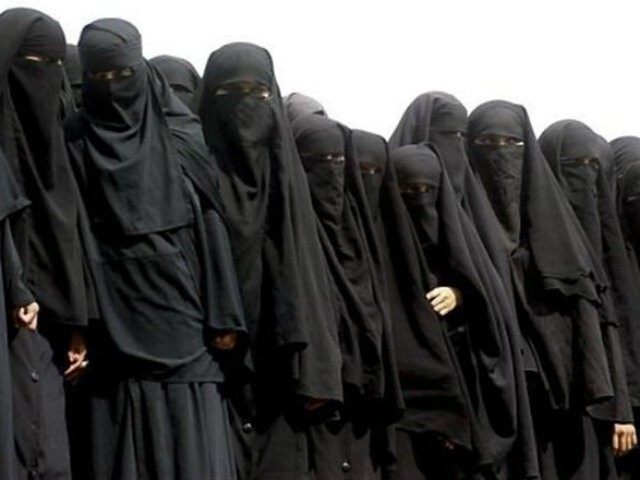The government of Chad, a mostly Muslim African nation, has banned the wearing of the Islamic full-face veil, or burqa, across the nation, as well as any “religious turbans” that may be used to hide explosives. The move follows a deadly attack in the nation’s capital, N’Djamena, believed to have been orchestrated by jihadist terror group Boko Haram.
“Even the burqas for sale in the markets will be withdrawn,” Prime Minister Kalzeube Pahimi Deubet insisted on Wednesday, meeting with religious leaders to explain the urgency of eradicating the full face covering from the Chadian public square. The burqa has been officially proclaimed a potential form of “camouflage” that may be used by terrorists to hide weapons or explosives, and the government has announced that any burqa in the nation must be burned in front of authorities.
The Prime Minister announced that “wearing the burqa must stop immediately from today, not only in public places and schools but throughout the whole of the country.” He also announced that law enforcement had been directed to “go into the markets and to seize all the burqas on sale and burn them.”
The move is meant to prevent an attack like the one on N’Djamena on Monday, where 34 were killed and more than 100 injured. Two separate suicide bombs caused the damage, and it is believed that four Boko Haram attackers were killed in the event, in addition to their victims. It is the first suicide attack of its kind in the capital, though Chad’s cooperation with Nigeria in eradicating Boko Haram had attracted the attention of the terrorist group, and Boko Haram terrorists had attacked border areas of the country.
Chad has lost more than 70 soldiers in the war on Boko Haram, which is now aligned with the jihadist terror group the Islamic State and has renamed itself the Islamic State West Africa Province (ISWAP). While Chadian President Idriss Deby has lamented the “regrettable” lack of cooperation with Nigerian military in the past, Chad has remained an active partner in fighting the terrorist threat.
Just this week, Chadian air force helicopters attacked at least six Boko Haram bases in Nigeria, which the military claimed caused “human and material damage,” though it is noted that the Chadian military is the only source to have confirmed the attacks. More attacks are expected in retaliation for the N’Djamena bombings.
Chad becomes only the latest in a series of nations that have either banned or are considering banning the burqa. France most famously banned the garment, being taken to international court over the ban and eventually winning. The victory allowed cities elsewhere in Europe–particularly in Spain–to follow suit. In Africa, the Republic of Congo has also banned the burqa, a move that follows a large influx of Muslims fleeing sectarian violence in the Central African Republic and officials claimed would “combat extremism.” The Republic of Congo and France remain the only nations to ban the veil on a national level.
China has allowed its western region of Xinjiang, where most of its Muslim population resides, to ban the burqa, as well as any “Islamic garb,” particularly during religious holidays. The move is also meant, officials claim, to combat extremism, particularly in light of a series of terrorist attacks the Chinese government blamed on the nation’s ethnic Uyghur minority, which is majority Muslim.

COMMENTS
Please let us know if you're having issues with commenting.